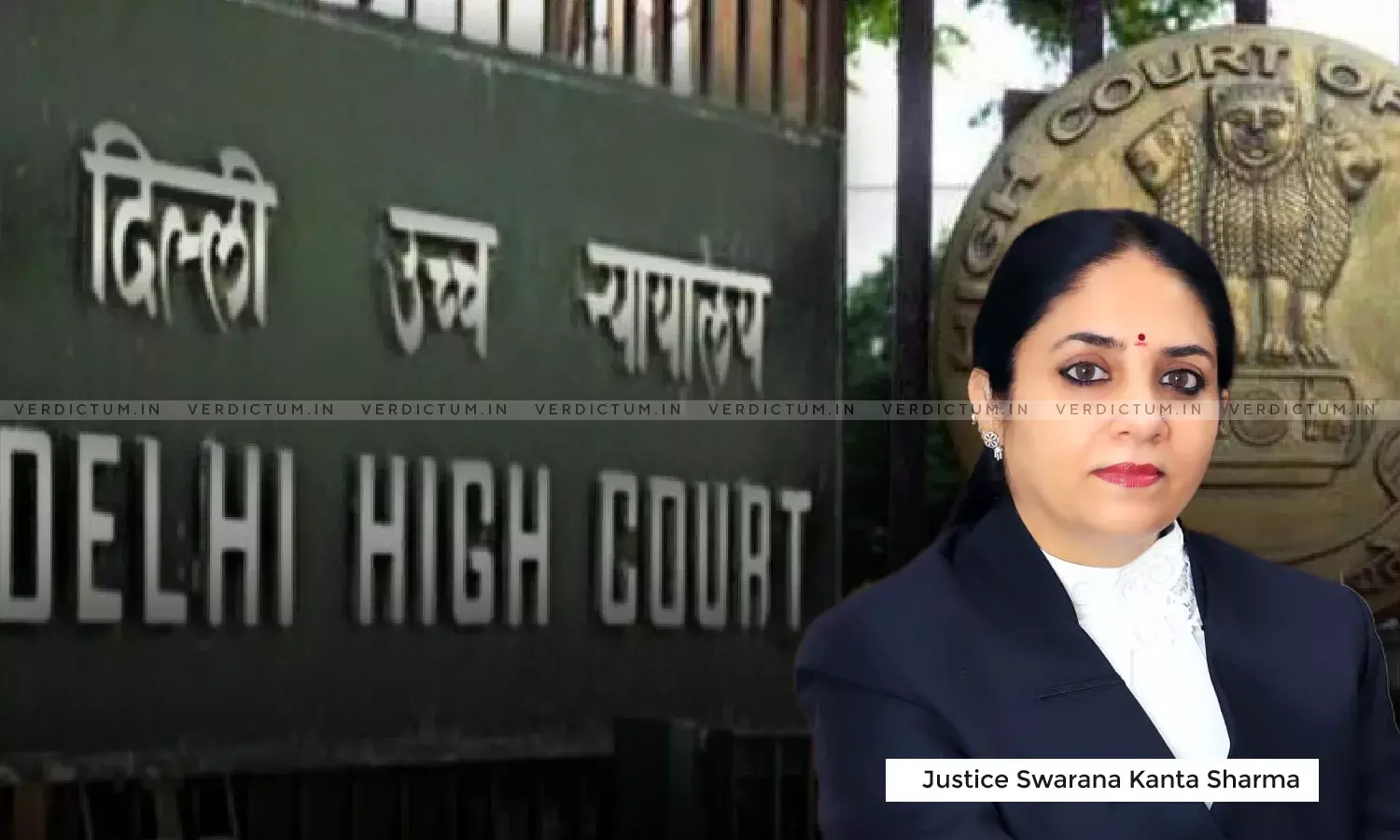Two-Way Videoconferencing To Record Testimony Of Prosecutrix Does Not Violate Accused’s Right To Fair Trial: Delhi HC
The Delhi High Court held that utilizing a two-way videoconferencing facility to record witness testimony does not deprive the accused its right to a fair trial.
The Court was considering a petition filed by a rape accused challenging the the Trial Court order that dismissed his petition seeking the physical presence of the prosecutrix for her examination and cross-examination.
“The concept of fairness though undoubtedly require that the counsel for the accused should be in a position to effectively defend his client, however, the two-way videoconferencing facility and recording of testimony of the witness in today’s technological era cannot be held as deprivation of fair trial to the accused”, the Bench of Justice Swarana Kanta Sharma held.
Advocate Tanveer Ahmed Mir appeared for the Petitioner and Additional Public Prosecutor Manoj Pant appeared for the State.
As per the FIR, the Petitioners allegedly raped a US citizen who had missed her flight to Dharamshala, resulting in the registration of a case under Sections 376D and 379 of the Indian Penal Code, 1860 (IPC). The petitioners filed an application to the Trial Court, seeking the physical presence of the prosecutrix for her examination and cross-examination. The Trial Court, in its order, dismissed the petitioners' application for the physical presence of the prosecutrix. A petition under Section 482 of the Code of Criminal Procedure, 1973 (CrPC) was filed before the High Court seeking to quash the order by the Trial Court.
The Court framed the following issues: “Whether the impugned order violates the mandate of High Court of Delhi Rules for video conferencing for courts 2021 (Rules)?
Whether permitting the prosecutrix to testify via two-way video-conferencing will violate the accused’s right to fair trial?”
Concerning the first issue, the Court observed that Rule 5.3.11 mandates obtaining the accused's consent when recording the evidence of a witness located overseas via video-conferencing. The Trial Court, addressed a similar argument, stating that there was implied consent from the accused, given the court's prior directions for the prosecutrix's production through video-conferencing. The Court, considering the consistent absence of objections from the Accused regarding the court's issuance of summons to the prosecutrix for physical or virtual appearance, and her deposition via video-conferencing, held that the Trial Court had not erred in its decision.
Furthermore, the Bench noted that Rule 18 provides the court with discretion to relax or dispense with specific rules when strict application could cause undue hardship, injustice, or an unwarranted burden on the parties. “The key intent behind incorporation of Rule 18, as it appears, is to provide a mechanism to act as a safeguard against the adverse consequences that may arise due to the inflexible application of rules”, the Bench noted.
While acknowledging the fundamental importance of the open court trial process and witnesses testifying orally in the presence of all parties, the Court observed an exception for vulnerable witnesses, particularly those of sexual assault. The Court delved into the legal framework regarding recording evidence through video-conferencing, referring to the cases of State of Maharashtra v Dr Praful B. Desai [(2003) 4 SCC 601] and Sujoy Mitra v State of West Bengal [(2015) 16 SCC 615]. The Court emphasized that video-conferencing not only aligns with statutory objectives but also offers a comprehensive and inclusive procedure that facilitates the presence of all stakeholders, including the accused, victim, defence counsel, prosecutor, and the Trial Court Judge.
In the context of the case, the Court asserted that the facility of video-conferencing is a two-way process, ensuring active participation by all parties. The Court observed the principles adhered to during video-conferencing, including rule administration, the presence of the Judge, defence counsel, and the State prosecutor, and the cross-examination of the witness by the defence counsel.
The Court noted that the use of video-conferencing, while embracing modern technology, adheres to fundamental principles of criminal law and justice, making it a suitable and fair method for recording the testimony of the prosecutrix. The Court noted, “the test of credibility, reliability and quality of her evidence will, therefore, depend on the testimony i.e. the examination-in-chief and the cross-examination by the learned defence counsel, and other factors which have to be taken into account while adjudicating a criminal case”.
The Bench observed that if the witness is visible on a large monitor, the judge, defence counsel, prosecutor, and accused can observe her during testimony and cross-examination. The Court emphasized that the determination of credibility, reliability, and quality of the evidence hinges on the examination-in-chief, cross-examination, and other relevant factors in adjudicating a criminal case.
Furthermore, the Court rejected the argument that the prosecutrix, being a mature and educated woman from a developed country, should not be considered a vulnerable witness. The Bench noted that the impact of sexual assault is universally devastating, and when the victim is a foreign citizen, recounting the traumatic experience in a foreign courtroom can be distressing.
Considering the unique circumstances, the Court emphasized the importance of recognizing the potential re-victimization and emotional trauma inflicted on the victim by requiring her physical presence for trial in the foreign land where the assault occurred. The Court emphasized the need for exploring alternative mechanisms to ensure a fair trial without unduly burdening the foreign citizen victim, rejecting the argument presented by the learned counsel in this regard.
Accordingly, the Court dismissed the Petition and affirmed the impugned order.
Cause Title: Vinod Kumar & Anr. v State (NCT Of Delhi) & Anr. (2023:DHC:9328)



